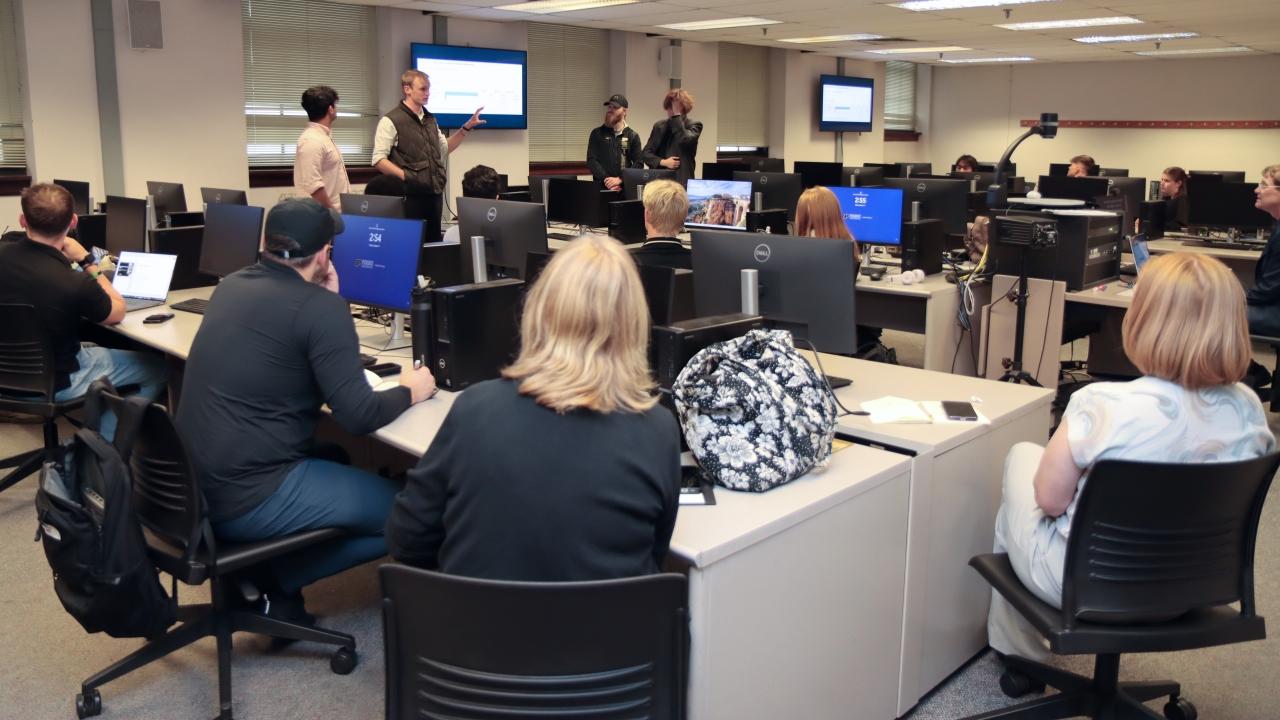Students in Purdue Polytechnic’s School of Engineering Technology and beyond recently stepped into the role of professional consultants, presenting market research findings directly to stakeholders from Purdue’s longstanding food service provider Aramark. The project, part of the Technical Service and Selling course, tasked students with developing strategies to increase profits and improve customer satisfaction at the Boiler Maker Market in Dudley Hall.
The collaboration represents a core tenet of the Polytechnic's hands-on educational philosophy: bridging the gap between classroom theory and real-world industry practice. On Oct. 17, the student teams presented their findings and strategic recommendations to the Aramark representatives, who attended the class to hear the results of the market research.
"It’s important for undergraduate students to engage in the marketing research process during a real-life consulting presentation because it helps them apply classroom knowledge to real business challenges," said Jim Tanoos, the clinical associate professor who regularly brings together real-world clients and students from his seminars—of which this project is the latest iteration.
"These skillsets allow students to truly become ready for real world challenges that they often face in the workplace so that they are industry ready on day one."
To prepare for the task, the students first participated in a multifaceted workshop on market research best practices and the use of the survey software Qualtrics, led by Anne Weiss, Purdue's assistant director for assessment.
Following the workshop, student teams were given a clear directive: act as outside consultants for the Boiler Maker Market. They were tasked with researching the student buying process, analyzing the current product offerings, and identifying opportunities for growth. To gather data, each team designed and distributed a Qualtrics survey to their peers, asking about everything from potential new products like smoothies and fresh pizza slices to amenities like microwaves or additional self-checkout registers.
The project was the culmination of a semester spent honing their consulting and presentation skills through a series of time-sensitive, team-based case dilemmas. While previous cases were based on fictional scenarios—such as addressing production defects or navigating ethical supply chain issues—this final project put their skills to the test with a live, on-campus business.
Additional information

